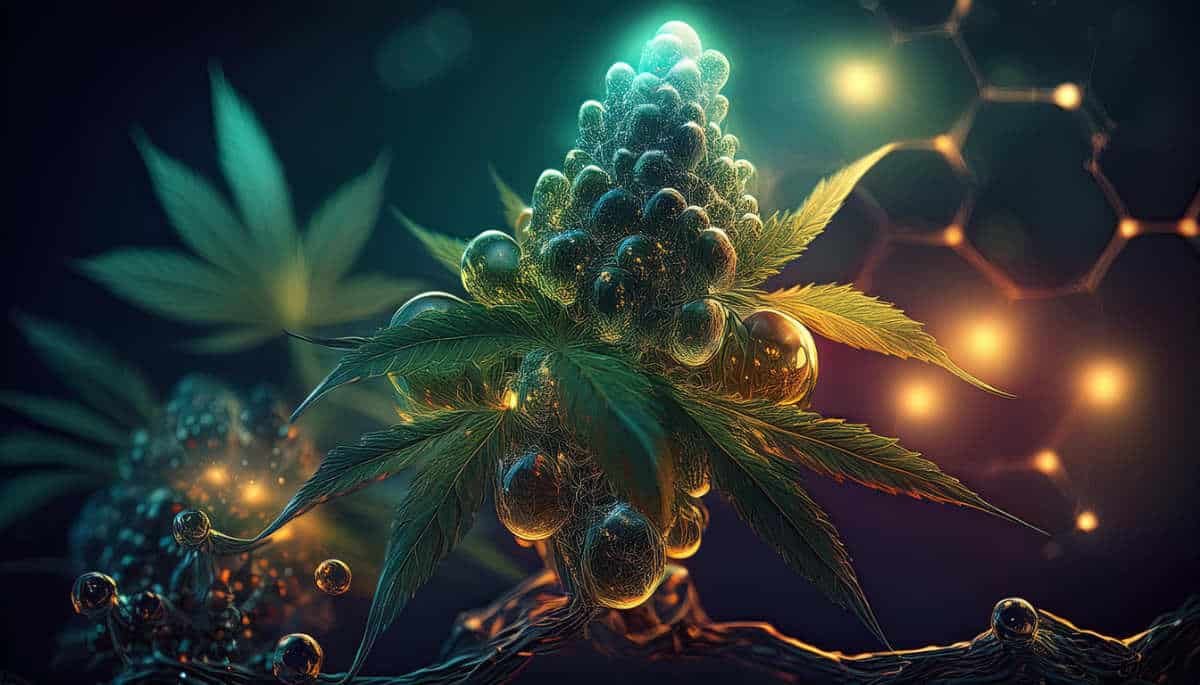Cannabis is a complex plant with a multitude of chemical compounds that contribute to its effects, flavor, and aroma. Among these compounds, terpenes play a crucial role. One of the most intriguing and beneficial terpenes found in cannabis is beta-caryophyllene (BCP). This terpene is not only responsible for the distinctive spicy and peppery aroma of certain cannabis strains but also boasts a range of potential health benefits. In this article, we will explore what beta-caryophyllene is, its unique properties, and how it relates to cannabis.
What is Beta-Caryophyllene?
Beta-caryophyllene is a naturally occurring terpene found in various plants, including black pepper, cloves, cinnamon, and, of course, cannabis. It is one of the most abundant terpenes in nature and contributes to the spicy and woody aroma of these plants. What sets this terpene apart from other terpenes is its ability to interact with the body’s endocannabinoid system (ECS), specifically the CB2 receptors, which play a role in regulating inflammation, pain, and immune response.
The Unique Properties of Beta-Caryophyllene
1.Dual Nature: Unlike most terpenes that primarily contribute to aroma and flavor, this terpene acts as both a terpene and a cannabinoid. Its ability to bind to CB2 receptors distinguishes it from other terpenes and highlights its potential therapeutic properties.
2.Non-Psychoactive: This terpene is non-psychoactive, meaning it does not produce the “high” associated with THC (tetrahydrocannabinol). This makes it an attractive option for individuals seeking the medicinal benefits of cannabis without the psychoactive effects.
Health Benefits of Beta-Caryophyllene
Research has highlighted several potential health benefits of beta-caryophyllene, largely due to its interaction with the ECS:
1.Anti-Inflammatory Properties: Beta-caryophyllene has shown significant anti-inflammatory effects. By binding to CB2 receptors, it can help reduce inflammation, making it a promising compound for treating conditions like arthritis and inflammatory bowel disease.
2.Pain Relief: Beta-caryophyllene’s ability to modulate pain through the ECS suggests it could be an effective natural pain reliever. Studies have demonstrated its potential to reduce pain and discomfort, particularly in chronic conditions.
3.Anxiety and Depression: Preliminary research indicates that beta-caryophyllene may have anxiolytic (anxiety-reducing) and antidepressant effects. By interacting with the ECS, it may help regulate mood and stress responses.
4.Neuroprotective Effects: There is growing evidence that this terpene may offer neuroprotective benefits. It has been studied for its potential to protect brain cells and reduce the risk of neurodegenerative diseases like Alzheimer’s and Parkinson’s.
5.Gut Health: Beta-caryophyllene’s anti-inflammatory properties also extend to the gastrointestinal system. It may help manage conditions like colitis and Crohn’s disease by reducing inflammation in the gut.
Beta-Caryophyllene in Cannabis
Beta-caryophyllene is prevalent in many cannabis strains, contributing to their unique flavor profiles and therapeutic effects. Some strains known for high levels of beta-caryophyllene include:
1.Girl Scout Cookies: This popular strain is renowned for its sweet and spicy aroma, which can be attributed in part to beta-caryophyllene. It is often used for its pain-relieving and anti-anxiety properties.
2.Sour Diesel: Known for its pungent and earthy aroma, Sour Diesel contains significant levels of this cannabis terpene. It is favored for its uplifting and energizing effects, as well as its potential to reduce stress and pain.
3.Bubba Kush: This indica-dominant strain is rich in beta-caryophyllene, contributing to its relaxing and sedative effects. It is commonly used for pain relief and insomnia.
4.OG Kush: Another well-known strain, OG Kush, features a complex terpene profile with notable levels of this terpene. It is popular for its stress-relieving and mood-enhancing effects.
Synergy with Other Terpenes and Cannabinoids
This terpene does not work in isolation; it often acts synergistically with other terpenes and cannabinoids to enhance the overall therapeutic effects of cannabis. This phenomenon, known as the “entourage effect,” suggests that the combination of compounds in cannabis can be more effective than isolated components.
For example, this terpene can interact with THC and CBD (cannabidiol) to modulate their effects. While THC primarily binds to CB1 receptors and is responsible for the psychoactive effects of cannabis, beta-caryophyllene’s interaction with CB2 receptors can help mitigate some of THC’s side effects, such as anxiety and paranoia. Similarly, the combination of beta-caryophyllene and CBD may enhance anti-inflammatory and pain-relieving effects.
This terpene is a unique and versatile terpene that plays a significant role in the cannabis plant. Its ability to act as both a terpene and a cannabinoid, combined with its non-psychoactive nature, makes it an intriguing compound for therapeutic use. Whether you are seeking relief from pain, inflammation, anxiety, or other conditions, beta-caryophyllene-rich cannabis strains offer a natural and effective option.
At Canna Guide, we are dedicated to providing you with accurate and comprehensive information about cannabis and its many components. By understanding the role of terpenes like beta-caryophyllene, you can make informed decisions and enhance your cannabis experience for better health and well-being.



